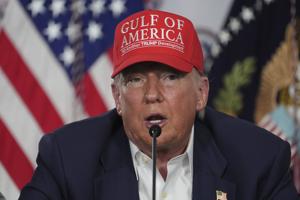Paramount Global has agreed to a $16 million settlement with former President Donald Trump, resolving a lawsuit concerning the editing of a contentious “60 Minutes” interview with then-Vice President Kamala Harris in October 2020. This settlement marks a significant conclusion to a legal battle that has drawn attention to media practices and the portrayal of political figures.
The lawsuit, filed by Trump in 2021, alleged that CBS, a subsidiary of Paramount, had engaged in deceptive editing practices that misrepresented his statements during the interview. Trump claimed that the edits were intentionally misleading and sought damages for defamation and emotional distress.
Background of the Case
The interview in question aired during a critical period leading up to the 2020 Presidential Election. It featured a heated exchange between Trump and the “60 Minutes” correspondent, which was later followed by an interview with Kamala Harris. Trump’s legal team argued that the edits favored Harris and painted Trump in an unfairly negative light.
This case is not the first time Trump has clashed with media outlets over coverage. Throughout his presidency, Trump frequently criticized major networks, often labeling unfavorable reports as “fake news.” The lawsuit against CBS was part of a broader strategy to challenge what he perceived as biased media narratives.
Legal and Media Implications
The settlement, while substantial, avoids a potentially lengthy and public trial that could have further scrutinized media editing practices. Legal experts suggest that the case highlights the delicate balance between editorial discretion and the ethical obligation to present interviews accurately.
According to media law expert Dr. Sarah Collins, “This settlement underscores the importance of transparency in editing. While networks have the right to edit for clarity and time, they must ensure that the essence of the interview remains intact.”
“This case serves as a reminder of the power dynamics between public figures and media entities, particularly in politically charged environments.” — Dr. Sarah Collins
Historical Parallels and Future Outlook
The settlement is reminiscent of past legal battles between public figures and media organizations. Notably, in 1993, General Motors settled with NBC over a controversial report on vehicle safety, which also involved allegations of deceptive editing. Such cases often lead to increased scrutiny and calls for reform within the media industry.
Looking ahead, this settlement may prompt media companies to reassess their editorial policies and training. It also raises questions about the future of political interviews and the role of media in shaping public perception during election cycles.
As part of the settlement, CBS has not admitted any wrongdoing. However, the network has expressed its commitment to maintaining high journalistic standards. In a statement, CBS emphasized its dedication to “providing fair and accurate reporting to its viewers.”
Conclusion and Next Steps
While the settlement resolves the immediate legal dispute, it leaves open broader discussions about media ethics and the portrayal of political figures. For Trump, the settlement represents a victory in his ongoing battle against what he perceives as media bias.
As the media landscape continues to evolve, the implications of this case will likely influence future interactions between public figures and media outlets. Observers will be watching closely to see how networks navigate the complex terrain of political reporting in the years to come.
